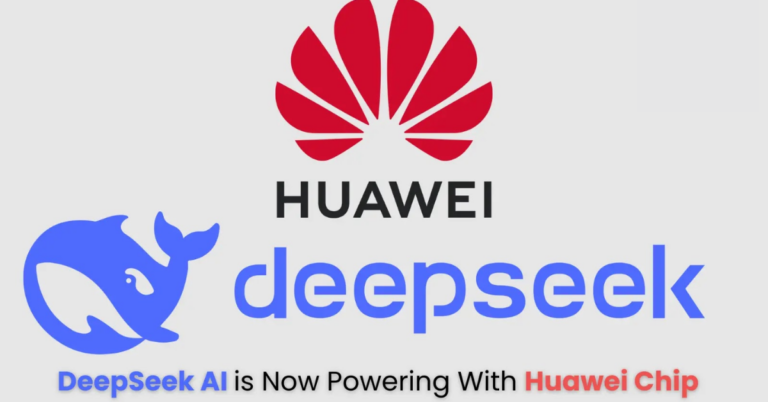Huawei has been making significant strides in the artificial intelligence (AI) sector, with its cutting-edge Ascend AI chips playing a crucial role in DeepSeek AI. As China continues its push for self-sufficiency in AI technologies, Huawei’s AI processors are emerging as a strong alternative to Nvidia’s GPUs, reshaping the global AI market. This article delves into how Huawei chips are powering DeepSeek AI, their advantages, and the implications for the AI industry.
What is DeepSeek AI?
DeepSeek AI is an advanced AI model designed to compete with global leaders such as OpenAI’s ChatGPT. Developed with a focus on high-performance computing, DeepSeek AI aims to provide an efficient, scalable, and powerful AI solution for various applications, from natural language processing to complex computational tasks.
Huawei’s Ascend AI Chips: The Power Behind DeepSeek AI
1. Key Features of Huawei’s Ascend AI Chips
Huawei’s Ascend 910C AI processors are at the core of DeepSeek AI’s performance. These chips are designed for high-efficiency AI inference and training, offering enhanced computing power, lower energy consumption, and seamless integration with AI frameworks.
Key specifications include:
- High computational efficiency for AI model inference.
- Optimized power consumption for extended operations.
- Advanced neural processing capabilities for large-scale AI models.
2. How Huawei Chips Are Enhancing DeepSeek AI
DeepSeek AI initially trained its models using Nvidia H100 GPUs. However, for inference and further AI processing, it has transitioned to Huawei’s Ascend 910C chips. This shift is driven by several factors:
- Cost-Effectiveness: Huawei’s chips offer a more affordable alternative to Nvidia’s high-end GPUs.
- Energy Efficiency: The Ascend AI chips are optimized for lower power consumption, making them ideal for sustained AI operations.
- Reduced Dependence on Foreign Technologies: By leveraging domestic semiconductor technology, China aims to reduce reliance on U.S.-based chip manufacturers.
The Strategic Importance of Huawei’s AI Chips
1. China’s AI Independence
With increasing U.S. sanctions on advanced semiconductor exports, China has been accelerating its efforts to develop domestic alternatives. Huawei’s success with the Ascend AI processors marks a significant step toward technological self-sufficiency in AI hardware.
2. Impact on the Global AI Market
Huawei’s advancement in AI chips has global implications, particularly in the AI hardware market dominated by Nvidia. The rapid adoption of Ascend chips by AI startups and research institutions could disrupt the industry and create a new competitive landscape.
3. Challenges and Limitations
Despite their success, Huawei’s AI chips face certain challenges:
- Software Compatibility: Many AI frameworks are optimized for Nvidia’s CUDA architecture, requiring additional effort to adapt to Huawei’s AI ecosystem.
- Market Penetration: Competing against well-established Nvidia products remains a hurdle for Ascend chip adoption outside China.
- Scalability Issues: Further optimization is needed for large-scale AI training on Huawei’s chips.
Future Outlook: What’s Next for Huawei and DeepSeek AI?
Huawei is continuously improving its AI chips, with future iterations of the Ascend series expected to bring even greater computational power and efficiency. Meanwhile, DeepSeek AI’s success signals a growing shift towards alternative AI hardware solutions, further challenging Western dominance in AI infrastructure.
Conclusion
Huawei’s Ascend AI chips are playing a crucial role in powering DeepSeek AI, showcasing China’s progress in developing independent AI capabilities. With cost efficiency, energy optimization, and increasing market adoption, these chips have the potential to reshape the AI hardware landscape. While challenges remain, Huawei’s advancements in AI chips mark a significant milestone in China’s technological evolution, positioning it as a key player in the global AI race.
Meta Title: Huawei Chips Powering DeepSeek AI – A Game-Changer in AI
Meta Description:
URL Slug:



